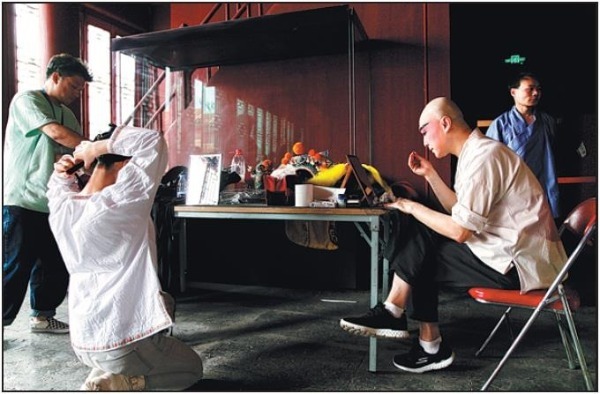

Cao Ying, deputy director of the Northern Kunqu Opera Theater, is another witness of the rise and fall of Kunqu in the past decades. There were only about 120 people in the troupe in 2001, but it has now grown to more than 250 people.
"One priority is to have performers of the next generation inherit the classics," he says. "That needs continuous nurturing of young talent."
Over the past three years, the theater has systematically organized a training program on the performance of 120 key excerpts from classical scripts, and they plan to cover 200 of these excerpts in the ongoing project. Young performers will receive around 15 days of training for each excerpt.
The troupe is also focused on creating new works based on recent history so as to remain relevant with the times.
"We also need to nurture the audience of the next generation," Cao says. "For many urbanites, enjoying Kunqu can be a trend."
The troupe has regularly organized Kunqu shows in Peking University since 2002, and thus built up a solid fan base at the university. The troupe also introduced Kunqu into the general education of five elementary schools in Beijing in 2016.
"About 5,000 children have joined this program," says Cao excitedly. "And behind these 5,000 children, there are 5,000 families. I believe they will become our loyal fans in the future."